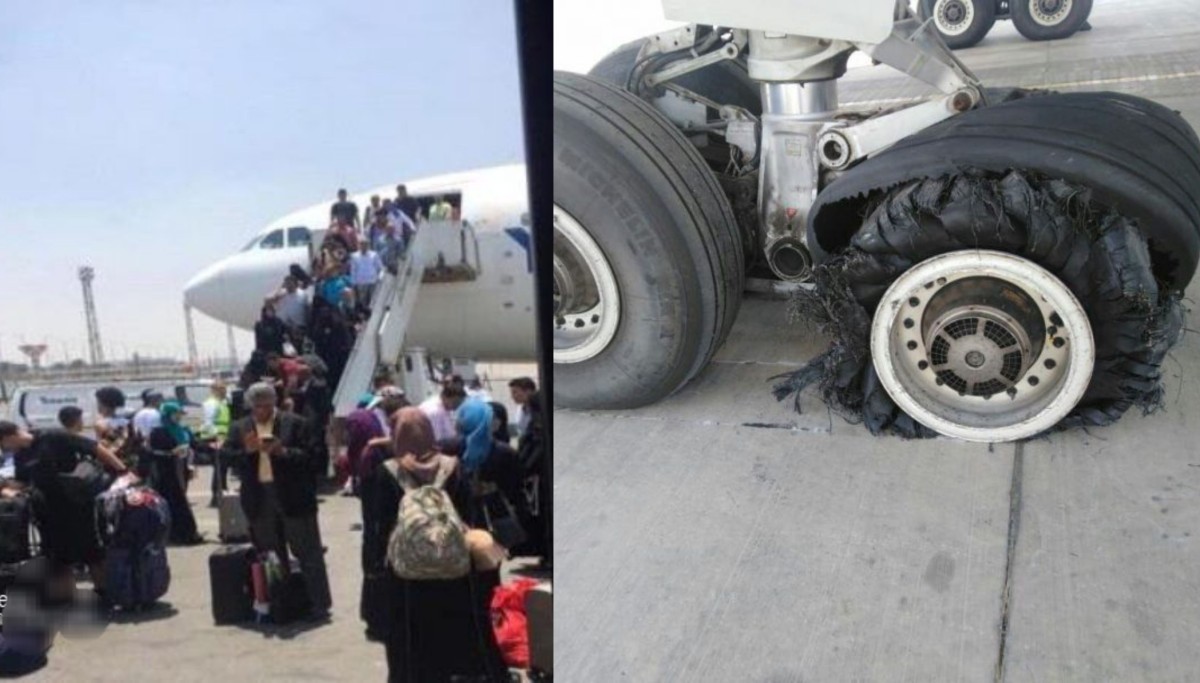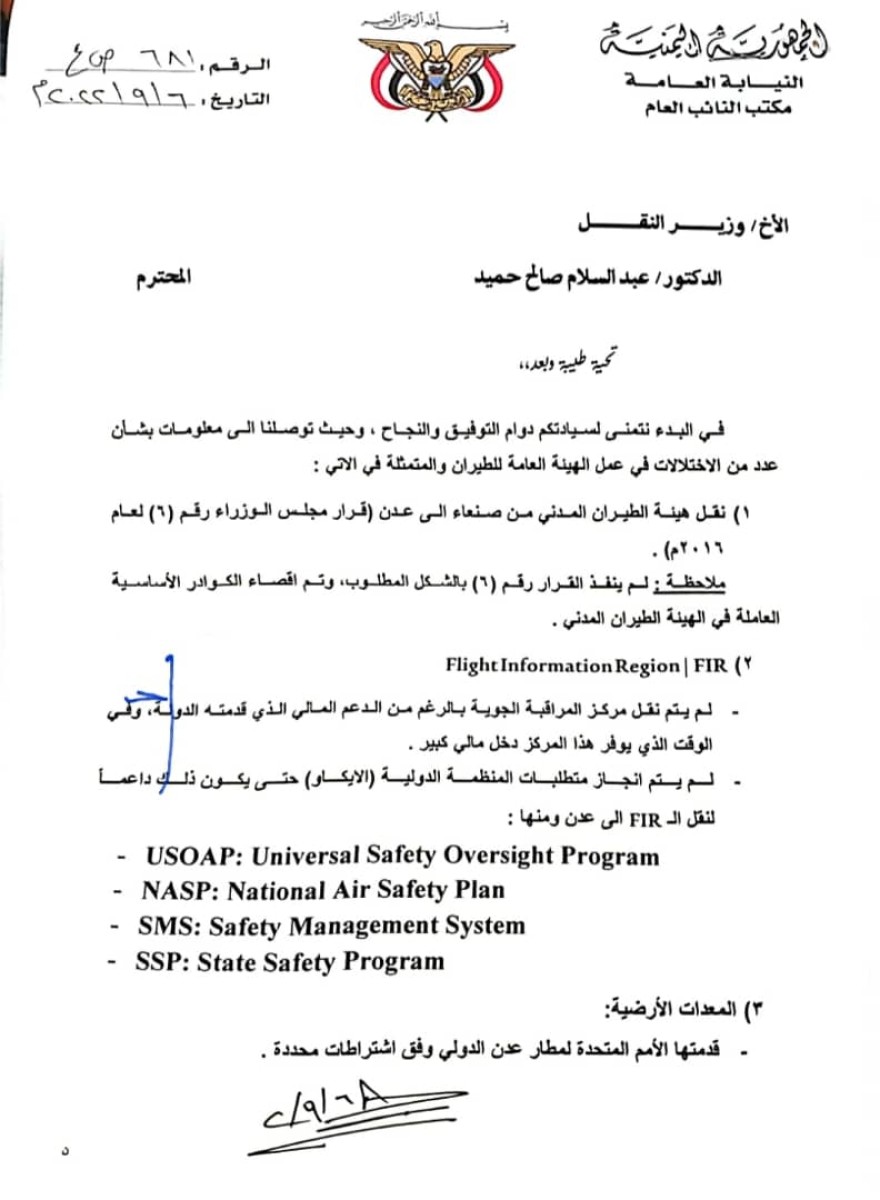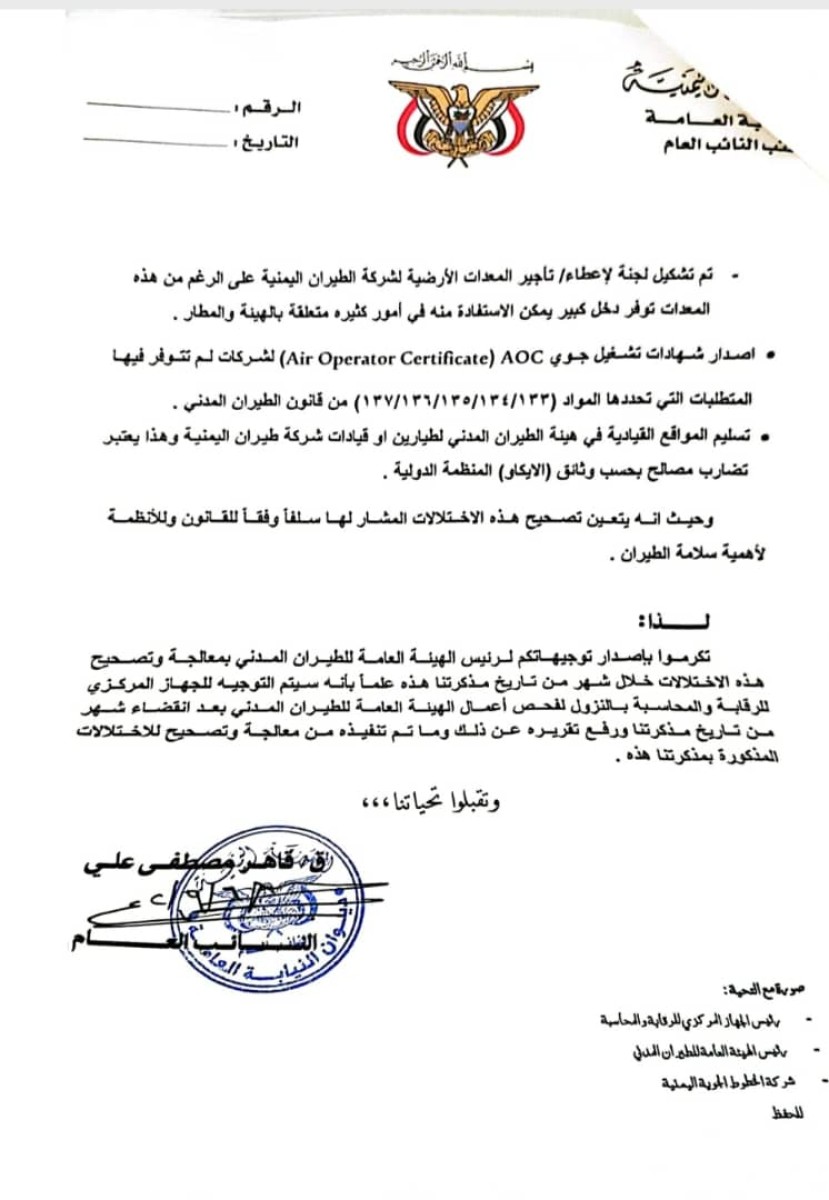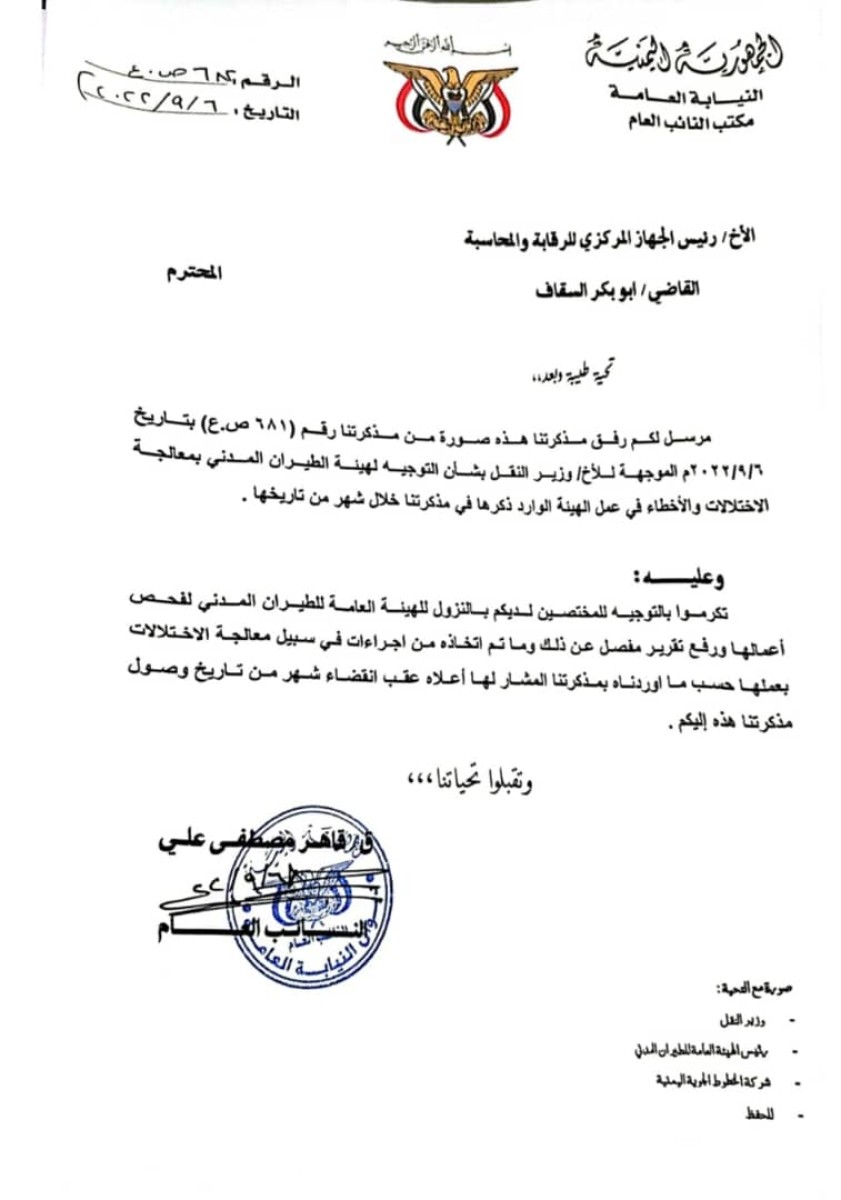Corruption and waste of the Ministry of Transport before the Attorney General..
Accusations of the Minister of Transport (Hamid) of excluding southern cadres and obstructing the implementation of official decisions (documents)


A Public Prosecution document obtained by Scoop 24 website revealed major imbalances in the General Authority of Civil Aviation, which falls within the Ministry of Transport, which is headed by the minister in the government of Maeen Abdul Malik, and who is affiliated with the Transitional Council (Abdul Salam Humaid). Among these imbalances reveals the mystery behind the delay in transferring control. And safety from Sanaa to Aden, the exclusion of southern cadres from the General Authority of Civil Aviation, and the obstruction of the implementation of ministerial decisions.
The Public Prosecution stated in its letter that the imbalances are as follows:
The decision to transfer the Authority and the Air Control Center
The Public Prosecution confirmed that the Ministry of Transport and the General Aviation Authority did not implement Cabinet Resolution No. (6) of 2016 AD, which required the transfer of the Civil Aviation Authority from Sanaa to Aden.
The prosecution’s investigation also revealed that the authority did not transfer the air control center to Aden, despite the financial support provided by the state, while this center provides significant financial income.
It was investigated that the Authority did not complete the requirements of the International Organization (ICAO) to transfer the FIR to Aden, which are:
- Universal Safety Oversight Program (USOAP)
- National Aviation Safety Plan (NASP).
- Safety Management System (SMS).
- State Safety Program (SSP).
Excluding southern cadres and employing unqualified others
In the document, the prosecution explicitly accused the Ministry of Transport of excluding and marginalizing the main and active southern cadres in the Civil Aviation Authority, who possess extensive experience that matches international standards, and employing other leaders and pilots in the Yemenia company who were not qualified, which negatively affected the progress of the transport sector. With the Yemeni government, it placed its control in the hands of the Houthis, who seized the assets and took control of the air control center. Recently, what was known as the crisis of $80 million belonging to Yemenia Airlines, which the Houthis held in Sana’a banks, was raised.
Utilization of ground equipment
In order to benefit greatly from the ground equipment, the investigation requested a reconsideration of the decision to lease ground equipment for the benefit of the Yemeni airline company. The investigation directed the formation of a committee to lease the ground equipment for the Yemeni airline company, even though this equipment provides a large income that can be used in many matters related to the authority. And the airport.
Companies' compliance with laws
The Public Prosecution’s investigation, according to its direction in the memorandum to the Minister of Transport (Hamid), showed that there was an illegal issuance of Air Operator Certificates (AOC) to companies that did not meet the requirements specified in Articles (137/136/135/134/133) of the Aviation Law. Civil.
Conflict of interest
The investigation revealed the involvement of the Minister of Transport in imposing unqualified leadership in the Civil Aviation Authority, which the Public Prosecution considered a conflict of interest, according to documents (ICAO), the international organization.
The Public Prosecution confirmed that these imbalances affect the safety of civil aviation, and called on the Minister of Transport to issue directives to the Chairman of the General Civil Aviation Authority to address and correct these imbalances within a month from the date of the memos, based on the memorandum of the Attorney General, who directed the Central Agency for Control and Accounting to go down and examine the Authority’s work. After one month has passed from the date of the memos, he will submit his report on that and the treatment and correction of the aforementioned imbalances that have been implemented.



